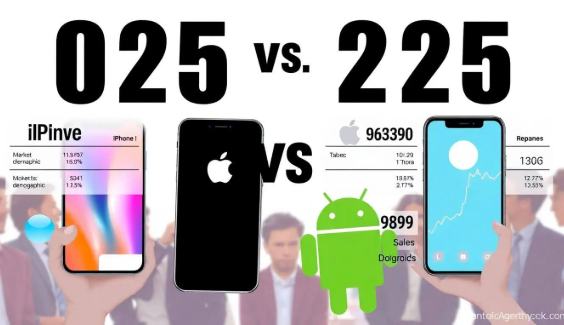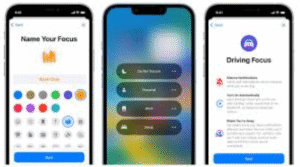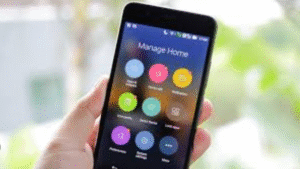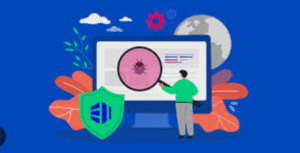
In an era where data is often more valuable than oil, privacy has become one of the most important concerns for smartphone users. With billions of people relying on their phones to communicate, browse, pay bills, and store personal information, choosing a privacy-focused operating system has never been more critical. The two major players in the mobile OS arena, iOS by Apple and Android by Google, have taken drastically different approaches to privacy. But in 2025, which one is better for protecting your digital life—iOS or Android?
This article breaks down the privacy ecosystems of iOS and Android in 2025, analyzing core differences, feature updates, transparency measures, data control, and third-party app behavior.
1. Philosophical Differences: Privacy by Design vs. Privacy by Control
iOS (Apple): Privacy by Design
Apple has long marketed itself as a privacy-centric company. Its business model is not primarily driven by ad revenue, giving it less incentive to collect and monetize user data. In 2025, Apple continues to emphasize privacy by embedding it directly into the core of its operating system. Apple controls both the hardware and software, which allows for tight integration and stringent privacy safeguards.
Android (Google): Privacy by Control
In contrast, Google’s Android platform is deeply connected to the advertising ecosystem. Google’s revenue largely comes from personalized ads, meaning data collection is a key part of its business model. However, Google has taken significant steps to give users more control over their data. Android now offers granular permissions and stronger privacy dashboards, but it still relies heavily on user initiative.
Winner: iOS – Apple’s privacy-by-design philosophy means privacy is often the default rather than an option to be enabled.
2. Operating System Updates and Device Fragmentation
iOS: Consistent and Widespread Updates
In 2025, Apple devices like the iPhone 12 and newer are still receiving regular updates. Apple ensures that privacy patches and features reach almost all active users. This uniformity allows iOS to maintain a secure and up-to-date environment.
Android: Fragmented Ecosystem
Android’s biggest challenge remains fragmentation. While Google’s Pixel devices and some flagship models (like Samsung’s Galaxy S series) receive timely updates, many Android devices are still stuck on outdated versions. Even with initiatives like Project Treble and Android One, widespread update adoption lags behind iOS.
Winner: iOS – Reliable, fast, and consistent updates are key for maintaining privacy.
3. App Permissions and Data Access
iOS: App Tracking Transparency (ATT) and More
With the introduction of App Tracking Transparency (ATT) in iOS 14 and further refinements through iOS 18, users must now explicitly allow apps to track them across other apps and websites. Most users opt out, limiting advertisers’ reach. iOS also provides real-time access indicators (camera, microphone), one-time permissions, and clipboard access alerts.
Android: Privacy Dashboard and Permission Manager
Android 13 introduced the Privacy Dashboard, giving users insight into what data is accessed and when. Android 14 and 15 further refined permission management by auto-revoking unused app permissions and offering temporary permissions. However, Android still grants more default permissions than iOS in many cases.
Winner: iOS – Though Android is catching up, iOS still offers more rigid controls and transparency.
4. Data Collection Practices
iOS: Minimal First-Party Data Collection
Apple limits the amount of data collected even from its own services. Safari blocks third-party cookies by default, Mail Privacy Protection hides IP addresses, and Private Relay (with iCloud+) anonymizes web traffic.
Android: Data Collection for Ad Personalization
While Android users can now turn off ad personalization and reset their advertising IDs, many Google services still collect data unless the user manually opts out. Google Chrome still permits more tracking than Safari, and Google services are deeply integrated into Android.
Winner: iOS – Apple collects less data by default and doesn’t use it for ad targeting.
5. Built-In Privacy Features
iOS: Robust Ecosystem
-
Private Relay: Encrypts internet traffic for Safari.
-
Hide My Email: Creates random email aliases.
-
Lockdown Mode: Offers extreme protection for high-risk users.
-
Face ID with Secure Enclave: Biometric data is stored locally.
-
On-Device Siri Processing: Voice commands processed locally.
Android: Improvements with Caveats
-
Google Play Protect: Scans for malicious apps.
-
Safety Check: For privacy and safety settings.
-
Privacy Sandbox: Limits cross-app tracking.
-
On-Device Smart Features: Google Assistant uses local processing more often in 2025.
-
Auto-reset Permissions: For unused apps.
Winner: iOS – Although Android has narrowed the gap, Apple’s features are more private by design and harder to bypass.
6. Third-Party Apps and Ecosystem Control
iOS: Walled Garden Approach
Apple strictly monitors the App Store, vetting each app for compliance with its privacy rules. Developers must disclose what data is collected using App Privacy Labels. Though sideloading is still not available by default in 2025, this actually limits exposure to malicious software.
Android: Open but Riskier
Android allows sideloading and alternative app stores, offering more freedom. However, this increases the risk of installing apps that violate privacy norms. Google has improved app vetting via Google Play, but malicious apps still slip through.
Winner: iOS – The closed ecosystem is more restrictive but safer in terms of privacy.
7. Web Browsing Privacy
Safari (iOS): Tracker Prevention by Default
Safari includes Intelligent Tracking Prevention, hides IP addresses, and works with Private Relay for enhanced privacy. It limits fingerprinting and actively blocks many tracking scripts.
Chrome (Android): More Open, But Also More Tracked
Chrome remains the dominant browser on Android and is still less private than Safari. Though Privacy Sandbox features aim to replace cookies with more private alternatives, critics argue it’s still ad-focused.
Winner: iOS (Safari) – Provides better default protections with less ad tracking.
8. Cloud and Sync Services
iCloud (iOS): End-to-End Encrypted by Default
Apple has introduced Advanced Data Protection in iCloud, offering end-to-end encryption for iMessage, Photos, Notes, and more. Apple cannot access this data, even with a warrant.
Google One/Drive (Android): Encrypted but Not End-to-End for All Data
Google encrypts data at rest and in transit, but does not offer end-to-end encryption for most services. Gmail, for instance, is not end-to-end encrypted unless you use third-party tools like ProtonMail.
Winner: iOS – Stronger encryption and less access by default.
9. Voice Assistants and Privacy
Siri (iOS): On-Device and Encrypted
Siri processes many requests on-device, especially with newer iPhones. Audio recordings are not stored unless explicitly agreed upon. Apple doesn’t tie Siri interactions to your Apple ID.
Google Assistant (Android): Cloud-Based and Tied to Google Account
Though smarter in many tasks, Google Assistant often sends queries to the cloud. Recordings can be used to improve services unless turned off manually, and queries are linked to your account.
Winner: iOS – Siri is more private, even if less powerful.
10. Regulatory Compliance and Transparency Reports
Apple: Ahead of the Curve
Apple complies with GDPR, CCPA, and other privacy regulations. It regularly publishes transparency reports and informs users of government data requests. In 2025, Apple also expanded transparency in third-party app data usage.
Google: Improving, But Still Under Scrutiny
Google has faced multiple investigations for opaque data practices. It’s working to comply with global regulations, but concerns remain over how clearly users understand the extent of data collection.
Winner: iOS – Apple is often cited as a model for privacy compliance.
Final Verdict: iOS Wins the Privacy Battle in 2025
| Feature | iOS | Android |
|---|---|---|
| OS Updates | ✅ | ❌ |
| App Permissions | ✅ | ✅ |
| Data Collection | ✅ | ❌ |
| Ecosystem Control | ✅ | ❌ |
| Browsing Privacy | ✅ | ❌ |
| Cloud Security | ✅ | ❌ |
| Voice Assistant | ✅ | ❌ |
| Regulatory Compliance | ✅ | ❌ |
| Third-Party App Vetting | ✅ | ⚠️ |
| Overall Score | 9/10 | 5/10 |
While Android has made substantial progress in giving users more control over their data, the platform’s deep integration with ad services and fragmented update rollout makes it less secure out-of-the-box. iOS, with its hardware-software integration, stricter app ecosystem, and privacy-first philosophy, remains the better option for users who prioritize data privacy.
Conclusion: Choose Based on Priorities
If your top concern is control and customization, Android still offers unmatched flexibility. But if your priority is privacy and security, especially in a world full of cyber threats and data leaks, iOS clearly comes out ahead in 2025.
Regardless of your platform, remember: privacy starts with awareness. Regularly check your app permissions, update your device, use strong authentication, and stay informed.







